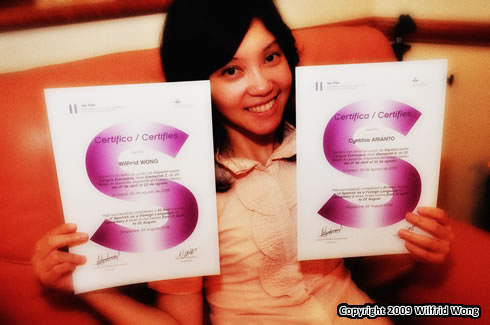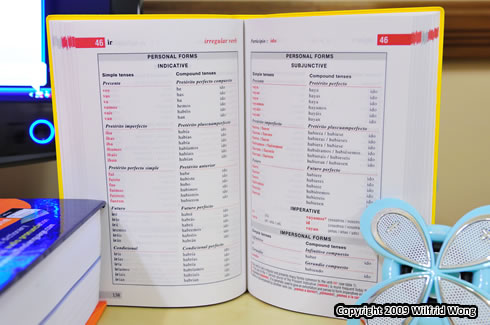“When I Was 18” – that was the topic of our Spanish homework. In fact, our teacher Natalia left the age to be open. It could well be when I was 16, when I was 24, when I was 30, when I was … OK, let’s stop here. I mean, when I was 16, my life was not that exciting. Maybe observing the gorgeous girls going in and out of the nightclub at the ground floor of my apartment in Hong Kong was one of the highlights of my being 16. What about that romantic relationship with a girl a couple of years younger than me? OK, that – was complicated. Really complicated.
18 was – looking back – the turning point of my life. One of those moments that was tantamount to a multi-facet metamorphosis – physically, mentally, and spiritually. 5,995 miles away from home, I was studying in UK. The age of experimentation, the age of inquisition, and the age of doing just the opposite for the sake of because-I-can. Sometimes in a good way, sometimes not. To experience at all cost. When you are that young, I guess empathy may not be high in your list. Neither is self-preservation. It is a time of having to face the consequences and to bear the scars, a time of learning and moving on.
When I was 18, I was used to walk afar, alone or with my friends. We would walk miles to another town, to visit the pubs, get chased by the dogs. A few years later, in another city of the same country, I would walk miles to visit Toy “R” Us, to check out the latest console game titles. I would spend hours walking, in the cold or in the rain, day or night. We would climb a crane and stand high up above the ground in order to embrace the chilly wind, feel the thrill down our spines. One evening, my friends and I ventured into a privately owned woodland. Occasionally we found shotgun shells on the ground, under a bright moonlight. Flying creatures would suddenly pop out of nowhere and got us scared. Or did we scare them with our trespass? When you are that young, you do not think. You act with your heart. At the end of our night trekking, we would see a peaceful lake with swans. Flying ducks would make a gentle landing onto the surface creating beautiful lines on the otherwise serene pliable gigantic mirror. In the middle of the lake, there was a castle decorated with modern interior. How nice if I could live in such a surreal surrounding. Looking back, I sincerely cannot recall how many times I have visited that lake. I think about those moments from time to time; I dream about those moments from time to time. When hallucination mixes with memory and dream, what is real, what is created by my mind consciously and subconsciously?
When I was 18, I seldom slept at night. My friends would drop by my room to chat, to listen to music, to do homework together, or to play guitar. My English friends would teach me the culture of tea drinking, the English way. I would teach them my culture of having toasted bread with butter and sugar. They were surprised when I sprinkled sugar on top of my buttered toast. I was surprised when some preferred to drink English tea with only milk and no sugar. I suppose when you are young, you are eager to try almost anything. And we would chat the entire night. Do you remember the days when you and your friends suddenly have this revelation that the world is so screwed up by the grown-ups? That we have millions and one ways to make this world a better place? Do you remember the days when you and your friends started to question the core of our existence? The future of our existence if there is one; the doom of our existence if there are none? Questions, questions, and questions. And we debated. The entire night.
That spirit of being 18, that spirit of endless adventure and no topic is a taboo. That carelessness, that care free attitude of life. Young is the one that plunges in the future and never looks back – so said Milan Kundera.
Now, I wish I could write that in Spanish. The result of my homework is a lot simplified. I am going to post it here because first it takes great effort to compose anything in Spanish and I may as well post it here for my personal future reference. And second, it is rare that I could get someone to correct my Spanish writing (thanks Natalia!) so here we go.
Cuando tenía 18 años, era un joven estudiaba que en Inglaterra. Me gustaba caminar largas distancias, gran altura. Mis amigos y yo caminábamos por el bosque bajo la luz de la luna. O entrábamos a otra ciudad a pie. Cuando veíamos una grúa, la subíamos. Era peligroso. Pero era joven, sin pensar mucho.
Cuando tenía 18 años, era un hombre tranquilo. Me gustaba escuchar música clásica o melodía de ayer todo el tiempo. Visitaba a menudo la habitación de mi amigo y escuchábamos la música pop. Otra amigo me introdujo la música rock. Y tocábamos las guitarras en la noche.
Cuando tenía 18 años, mis amigos y yo hablábamos durante toda la noche. Hablábamos sobre chicas, sobre extraterrestres y ballenas, sobre política y los problemas de mundo. Los problemas que pensábamos que podíamos resolver. ¡Qué ingenuos éramos!
Cuando tenía 18 años, veía la vida como una aventura. Ahora la veo como la rutina diaria. Prefiero quedarme en donde estoy.






